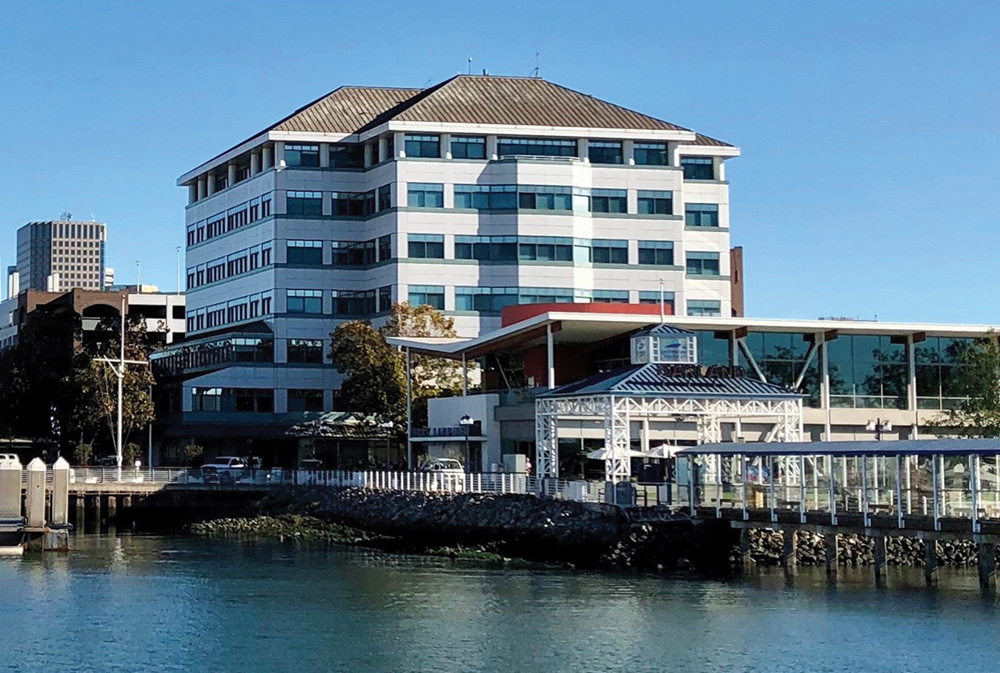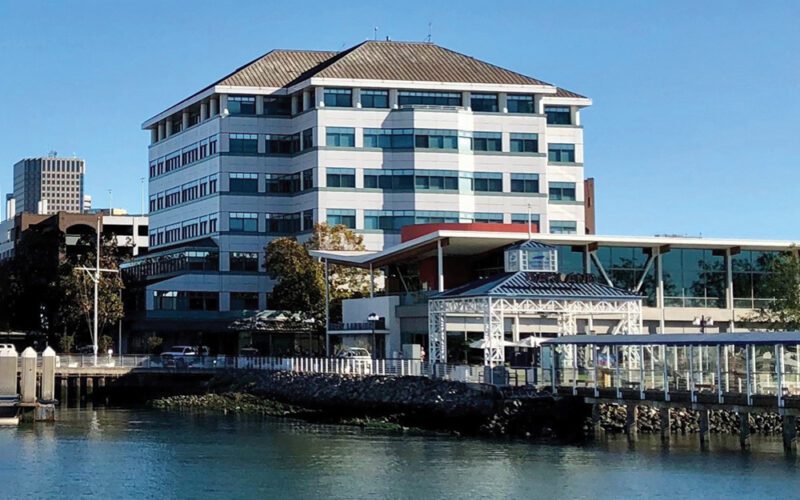
Following marine terminal operations at the Port of Oakland being heavily disrupted for nearly a week in July by truckers who were protesting the state’s “gig worker” law, the port is suing to prevent it from happening again.
On July 25, the port filed a lawsuit in California Superior Court against four independent contractor truckers who helped organize and participated in the days of protests by drayage truckers. The lawsuit aims to prevent more protests like the ones that occurred for nearly a week.
During the protests, which began July 18 and ended July 23, the port’s shipping terminals were effectively shut down.
The trucker blockage was in protest of California Assembly Bill 5, a state law adopted in 2018 that was affirmed when the U.S. Supreme Court denied review of the law. The state statute codifies and expands the scope of the so-called “ABC test,” which states that a worker must be classified as an employee, not a contractor, unless the employment meets all of the following conditions:
(A) the individual is free from direction and control applicable both under the contract for the performance of service and in fact; (B) the service is performed outside the usual course of business of the employer, and (C) the individual is customarily engaged in an independently established trade, occupation, profession, or business of the same nature as that involved in the service performed.
The state had been prohibited from enforcing the 2019 law, also known as the gig worker labor law, against trucking while a legal challenge claiming it was pre-empted by federal law made its way through the courts. But when the U.S. Supreme Court announced June 30 it would not hear the case, meaning it could now be enforced, it triggered protests in both the Los Angeles area ports and in Oakland.
The port said that the July protests temporarily prevented the timely flow of international commerce, including medical supplies, agricultural products, auto and technology parts, livestock and manufacturing parts.
But by July 25, port officials said, all marine terminals were open and operating normally.
“The Port of Oakland has resumed full operations,” Executive Director Danny Wan said at the time. “We appreciate the independent truck drivers’ use of the designated Free Speech Zones and we thank local law enforcement for their continued assistance.”
“The truckers have been heard and we now urge them to voice their grievances with lawmakers, not the Port of Oakland,” Wan added.
The suit, filed July 25, targets Enrique Alvarez, Prudencio Umana, Navdeep Ngill, Filmon Teklehaimanot, and as many as 2,000 protesters who so far remain unidentified.
“Defendants’ activities have gone beyond peaceful protest, protected speech, and lawful petition for a redress of grievances. Instead, Defendants have violated numerous traffic and other laws,” the port stated in its lawsuit.
““Defendants have violated these laws as part of a carefully planned and orchestrated campaign intended to block traffic, create life safety hazards for persons intending to work and/or do business on Plaintiff’s property and prevent vital interstate and international commerce from being conducted on and through Plaintiff’s property,” the suit contends.
Specifically, the port said that during the protests, the Defendants blocked and slowed traffic, particularly trucks, that were attempting to enter and leave the container shipping facilities located at the port’s inner and outer harbors by standing in intersections and streets, blocking or impeding ingress and egress of persons and vehicles. All the aforementioned actions are violations of state and local law and created a significant risk to public safety, the port said.
On Aug. 1, the Superior Court of California in Alameda County granted the port a temporary restraining order that the directs the defendants and those working with them from “block(ing) or imped(ing) ingress into, egress from, or the passage of vehicles or persons through, Port of Oakland facilities.”
In its lawsuit, the port is asking for a permanent injunction against blocking or obstructing vehicular or pedestrian traffic on port property; against violating any laws on property owned or managed by the port; against damaging or removing real or personal property or fixtures or improvements on or constituting port property; or creating risks to the lives and/or safety of persons with legitimate business on port property.
The port’s full six-page complaint can be seen at https://tinyurl.com/32jmzm45

